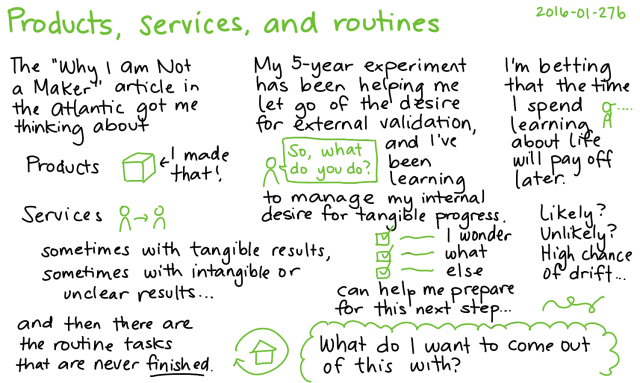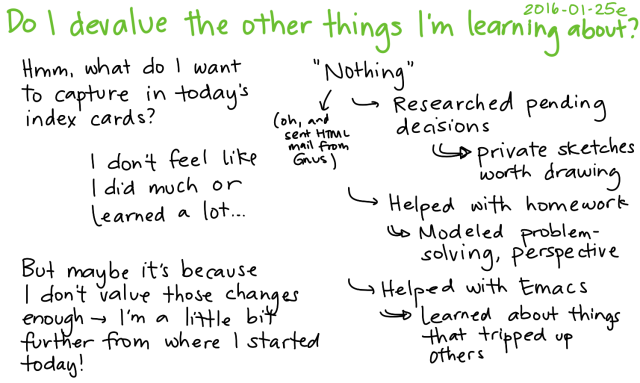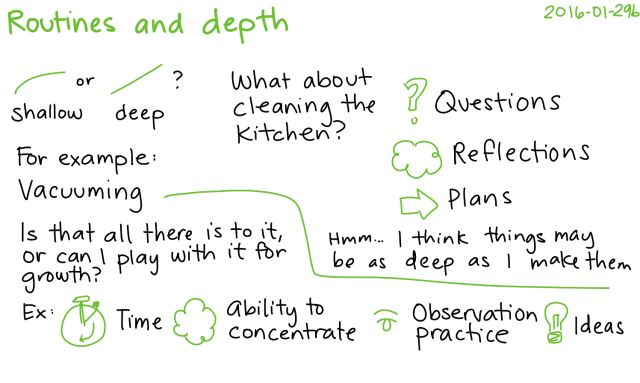On routines and depth
Posted: - Modified: | life, reflectionA few threads of thought coming together:
- coming across the Atlantic article Why I Am Not a Maker again, and reflecting on the differences between creating a product and providing a service (particularly a service with results that are hard to measure, or that are repeated)
- noticing the gradual shift in my 5-year experiment towards becoming more comfortable with routines and not just getting tangible stuff done
- preparing my mindset for the next phase of the experiment
2016-01-27b Products, services, and routines – index card #making #services #products.png
2016-01-25f Do I devalue the other things I'm learning about – index card #life #learning.png
I wonder: do I unfairly devalue the other things I do, the other opportunities I learn, because they don't resemble the things that I'm used to thinking of as opportunities for growth and learning?
2016-01-29b Routines and depth – index card #learning #perspective #routines
Routines such as vacuuming the house or cleaning the kitchen don't yet tickle my brain the way coding or sewing do. There's a sense of satisfaction in clearing the sink, sure, but it's not something that feels like progress during my weekly reviews, and it doesn't feel like growth in terms of capabilities.
But maybe that's a perspective thing, and perspectives can be tweaked.
For example, let's take vacuuming. It takes me about 30-40 minutes to do a quick vacuum of the house. It doesn't seem like there's much more to it. You don't really have 10x vacuuming the way people talk about 10x programming. On the other hand, vacuuming can be an opportunity to practise concentrating on thoughts and questions despite background noise. It could also be an opportunity to look closely at my surroundings and come up with ideas for decluttering stuff or streamlining routines. I could generate questions for further research. If I do a bit of reading before hand, I could mull over those thoughts while vacuuming.
What about cleaning the kitchen? That's fairly static. I do it in one place, instead of going through the rest of the house. Most items can go into the dishwasher, but there are a number of things that need to be washed by hand. I could use that time to pay close attention to sensation and anatomy, learning more about the muscles and bones in my hands. I can also learn more about and reflect on the manufacturing technologies and supply chains that made this kitchen possible. Then there's thinking about the meal we've just enjoyed, practising the sense-memory of the tastes and thinking about what to tweak next.
I wonder what else I can do to stack the deck so that these maintenance tasks feel as valuable to me as my more discretionary tasks. I think there might be surprising depth in these activities, like the way monks turn sweeping or walking into moving meditations. It'll get even awesomer as I get better at seeing the possibilities.
(In case you're wondering, W- does household chores too. He often brings home groceries, cooks, cleans the kitchen, folds laundry, and works on projects. He handles all the heavy stuff, too. I feel good about our current household workload. Besides, chores took up less than 8% of my total time over the past year, anyway – less than two hours a day, compared to >= 23% discretionary time. =) Plenty of time for other things!)



